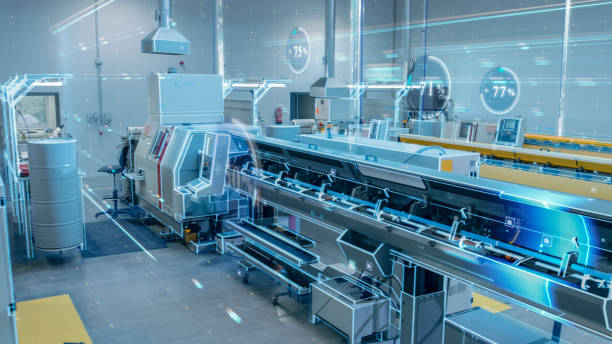Is a Laser Cutter a CNC Machine?
The world of precision cutting tools can be complex, with numerous devices available for different types of materials and projects. One of the common questions is: Is a laser cutter a CNC machine? In this article, we’ll unravel the similarities and differences between laser cutters and CNC machines, exploring their uses, benefits, and how they fit into modern manufacturing. By the end, you’ll have a comprehensive understanding of how these tools compare and contrast, making it easier to choose the best solution for your specific needs.
Understanding CNC Machines and Laser Cutters
1. What is a CNC Machine?
CNC, which stands for Computer Numerical Control, refers to machines that use programmed computer software to control tools and cut materials into desired shapes. CNC machines can perform operations like drilling, cutting, milling, and turning, among others. The tool used can be anything from a milling bit to a lathe tool, and it all works through numerical data inputted to guide the machine’s movements.
CNC machines are known for their versatility and can be used to process metals, plastics, woods, and composite materials. Some common CNC machines include:
- CNC Mills: Used for a variety of operations, including milling and drilling.
- CNC Routers: Often used to cut softer materials like wood or plastics.
- CNC Lathes: These machines rotate the workpiece and are ideal for creating symmetrical objects.
CNC machines are an indispensable part of the manufacturing industry due to their accuracy and ability to create complex designs repeatedly.
To explore more CNC spindle options for your machine, you can check our 2.2KW ER25 Square Air-Cooled Spindle.
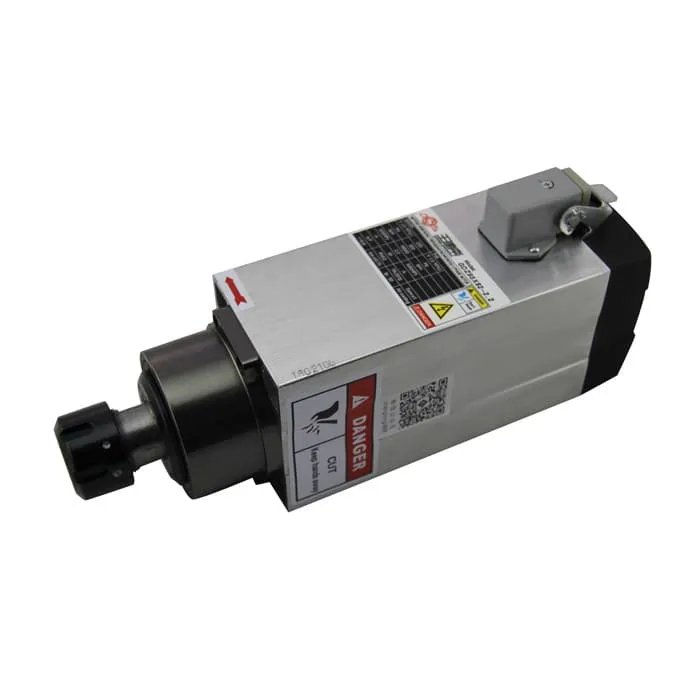
2. What is a Laser Cutter?
A laser cutter is a type of machine that uses a focused laser beam to cut or engrave materials. The laser beam melts, burns, or vaporizes the material, achieving clean cuts or intricate designs. Laser cutters are extremely accurate, and the beam can be fine-tuned to achieve different types of cuts, from simple shapes to detailed engravings.
Laser cutters are popular for materials like:
- Acrylics and plastics: Often used for signage and decorative items.
- Wood and paper: Suitable for creative arts, model-making, and crafts.
- Metals: Special laser cutters are available that can even process metal materials.
With a laser cutter, intricate designs can be completed faster and with higher precision compared to other cutting methods.
3. Are Laser Cutters a Type of CNC Machine?
To answer the question directly: Yes, a laser cutter can be considered a type of CNC machine. CNC stands for Computer Numerical Control, and laser cutters also use computer programming to guide their operations. Like other CNC devices, laser cutters use software instructions to direct their cutting actions. Thus, a laser cutter is a specialized form of a CNC machine, specifically designed for cutting and engraving materials using laser technology.
Upgrade your CNC machine with our 6KW ER32 Air-Cooled Spindle.
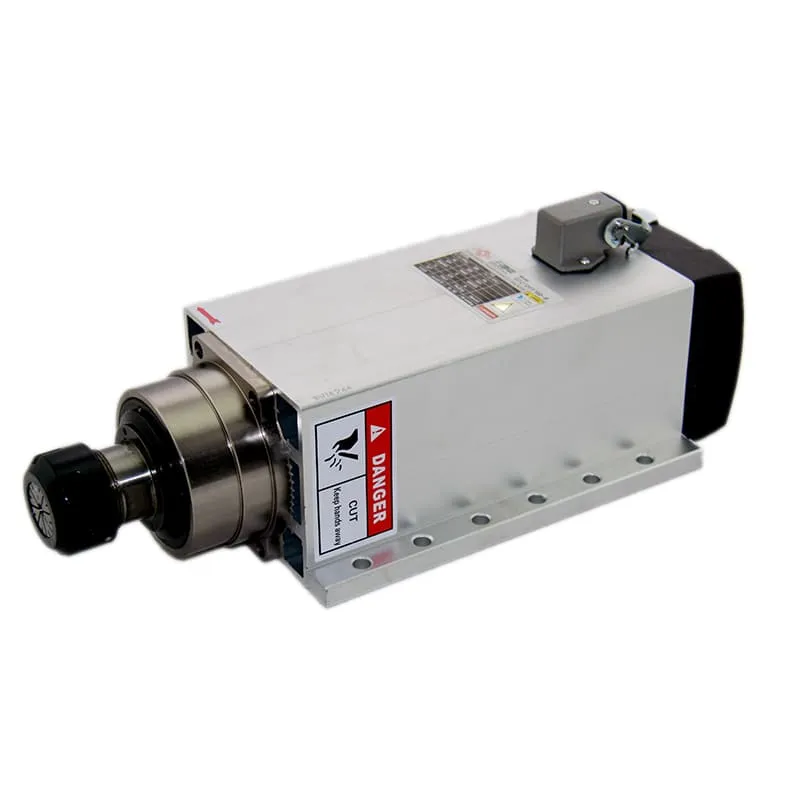
4. Differences Between Laser Cutters and CNC Routers
While both CNC routers and laser cutters fall under the broad category of CNC machines, they operate quite differently. Below, we compare some fundamental differences:
| Aspect | Laser Cutter | CNC Router |
|---|---|---|
| Cutting Method | Uses a laser beam to cut materials | Uses a rotating cutting tool or bit |
| Material Suitability | Excellent for thin sheets, acrylic, wood | Ideal for thicker materials, wood, plastics |
| Precision | High precision with minimal tool wear | Good precision but tool wear occurs |
| Speed | Faster for detailed designs | Slower for detailed designs |
Laser cutters can achieve more detailed and delicate cuts compared to CNC routers, while routers are better suited for thicker materials and projects involving deeper cuts.
5. Materials Best Suited for Laser Cutting
One of the major advantages of laser cutters is their versatility with different materials. Let’s explore some materials that laser cutters are often used for:
- Acrylic and Plexiglass: Perfect for transparent displays, signage, and customized panels.
- Wood and Plywood: Allows for the cutting of intricate patterns, creating beautiful artistic designs and decorations.
- Textiles: Used in the fashion industry to cut fabric with precision.
- Metals: High-powered laser cutters can cut stainless steel, aluminum, and brass, although they require special handling.
Laser cutters allow for high flexibility when dealing with various materials, making them a valuable tool for both manufacturing and creative industries.
6. Advantages of Using Laser Cutters
Laser cutters provide several advantages, especially compared to traditional CNC tools like routers or mills:
- High Precision: Laser cutters can make extremely fine cuts, achieving excellent detail and accuracy.
- Contactless Cutting: Since lasers cut without physically touching the material, there is no tool wear, reducing the maintenance cost.
- Speed: For detailed and intricate designs, laser cutting is typically faster than a CNC router.
- Clean Finish: The laser beam produces clean cuts without requiring additional finishing steps, which reduces post-processing time.
To boost your CNC setup, consider our 3.5KW ER25 Air-Cooled Spindle.
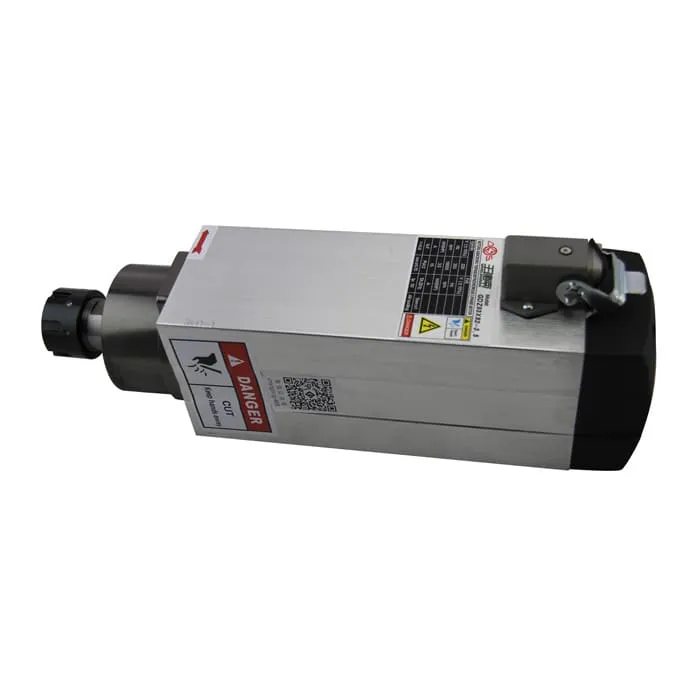
7. Applications of Laser Cutters
Laser cutters are commonly used in a variety of industries, thanks to their versatility and high precision. Key applications include:
- Advertising and Signage: Laser cutters create intricate and customized signs used for advertisements.
- Jewelry Making: The precision of laser cutters allows for the creation of delicate jewelry items.
- Prototyping: Ideal for creating prototypes quickly without investing in extensive tooling.
- Model Making: Perfect for architects, students, and engineers for creating scale models and prototypes.
Check out our 800W ER11 Air-Cooled Spindle to help your machine handle precise work efficiently.
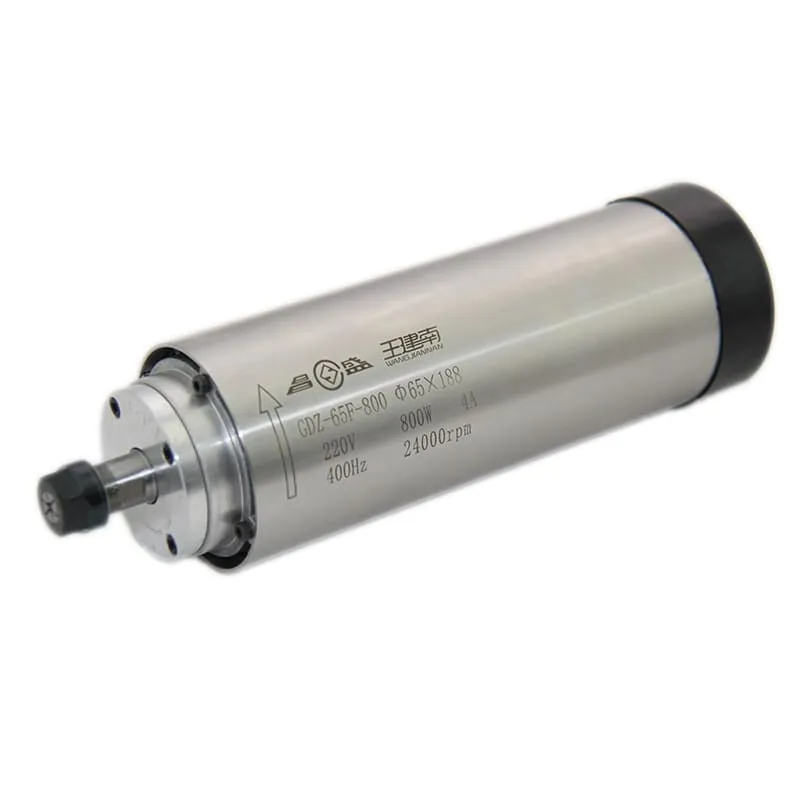
8. When to Choose a Laser Cutter Over a CNC Router
Deciding whether to use a laser cutter or CNC router depends largely on the project’s requirements. Below are instances where a laser cutter may be more appropriate:
- High Precision Cuts: When extremely detailed or intricate designs are required, a laser cutter is preferable.
- Thin Material: Laser cutters work best with thin sheets of material, providing clean and precise cuts without deforming the material.
- Low Maintenance: Since laser cutters use light beams and have no physical contact, they incur less wear and tear compared to routers.
However, CNC routers are better for thicker materials and three-dimensional projects, especially those involving significant depth and multi-sided cuts.
9. Laser Cutter Safety Considerations
While laser cutters are efficient tools, it is essential to follow strict safety guidelines to prevent injuries:
- Eye Protection: Lasers can damage eyes, even from a brief exposure. Wearing appropriate laser safety glasses is critical.
- Ventilation: Proper ventilation is needed to remove fumes, especially when cutting materials like plastics that produce toxic smoke.
- Material Handling: Only use materials that are safe for laser cutting. Some materials, such as PVC, release hazardous chemicals when cut.
10. Future of CNC and Laser Cutting Technology
As technology advances, CNC machines and laser cutters are becoming even more precise and versatile. The integration of AI and automation in these machines is making it easier for even non-experts to use CNC technology effectively. The growing accessibility of CAM (Computer-Aided Manufacturing) software has also played a crucial role in expanding the use of CNC and laser cutting technologies across industries.
Laser cutting, in particular, is likely to grow in the areas of precision manufacturing and custom product development. As demand for personalization and rapid prototyping grows, laser cutting is set to be at the forefront of the revolution.
FAQs About Laser Cutters and CNC Machines
1. What is the primary difference between a laser cutter and a CNC router?
The primary difference lies in the cutting method: laser cutters use a focused light beam, whereas CNC routers use rotating cutting tools.
2. Can a laser cutter be used on thick materials?
Laser cutters can cut thick materials, but the efficiency and precision may decrease. CNC routers are usually better suited for thick materials.
3. Which is more precise: a CNC router or a laser cutter?
Laser cutters are generally more precise due to their ability to create fine, detailed cuts without physical contact.
4. Is a laser cutter classified as a CNC machine?
Yes, a laser cutter is a type of CNC machine since it uses computer software to control the cutting process.
5. What types of materials can a laser cutter work with?
Laser cutters work well with acrylic, wood, textiles, and certain metals, but require specialized settings for each material.
Conclusion: Is a Laser Cutter a CNC Machine?
Is a laser cutter a CNC machine? The answer is yes. Laser cutters are a specialized type of CNC machine that use laser technology to perform precision cutting and engraving. With the ability to create intricate designs and the advantage of contactless cutting, laser cutters are a versatile tool used across various industries. Whether you need to create delicate prototypes, engrave designs, or manufacture customized parts, both CNC machines and laser cutters can provide effective solutions. Understanding their capabilities and applications helps in choosing the right tool for the right job, ensuring precision and efficiency for your next project.

